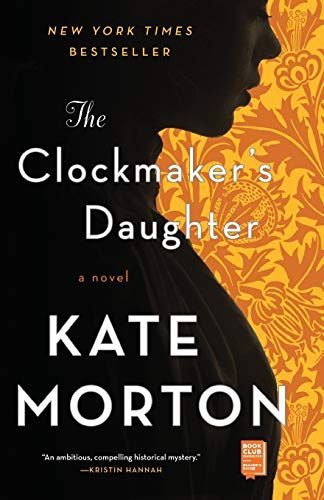
The Clockmaker's Daughter A Novel
INSTANT NEW YORK TIMES BESTSELLER “An ambitious, compelling historical mystery with a fabulous cast of characters…Kate Morton at her very best.” —Kristin Hannah “An elaborate tapestry…Morton doesn’t disappoint.” —The Washington Post "Classic English country-house Goth at its finest." —New York Post In the depths of a 19th-century winter, a little girl is abandoned on the streets of Victorian London. She grows up to become in turn a thief, an artist’s muse, and a lover. In the summer of 1862, shortly after her eighteenth birthday, she travels with a group of artists to a beautiful house on a bend of the Upper Thames. Tensions simmer and one hot afternoon a gunshot rings out. A woman is killed, another disappears, and the truth of what happened slips through the cracks of time. It is not until over a century later, when another young woman is drawn to Birchwood Manor, that its secrets are finally revealed. Told by multiple voices across time, this is an intricately layered, richly atmospheric novel about art and passion, forgiveness and loss, that shows us that sometimes the way forward is through the past.
Reviews
Ryan Mateyk@the_rybrary
Heather Margaret@heatherdarling
Jacqueline Englund@jackiereads
Cheri McElroy@cherimac
Mary Rose Luksha@mayroundstone
Sam 🌙@samanthatoms
Casey W. @zombiewilhelm
Terra@tle16h
Liz Carpenter@lizcarp
Karen Shimek@karenreads
megan@mkmoore
Sahi K@sahibooknerd
Judy McClure@crazee4books
Scott Taylor@lifeandstruggle
Amanda Wells@amandawells
Cheryl Hedlund@cappuccino136
Elizabeth Raines@izzyrain729
Tyler Rodrigues@tylerrosereads
Loren Botica@lozbot
Vida Koster@vidakreads
Megan Rose@meganrosereads
Erin @pagesofmilkandhoney
Les Reynolds@lreynolds
Lila A@pizza12345676
Highlights
Charlie Semaan @charlie_sem009